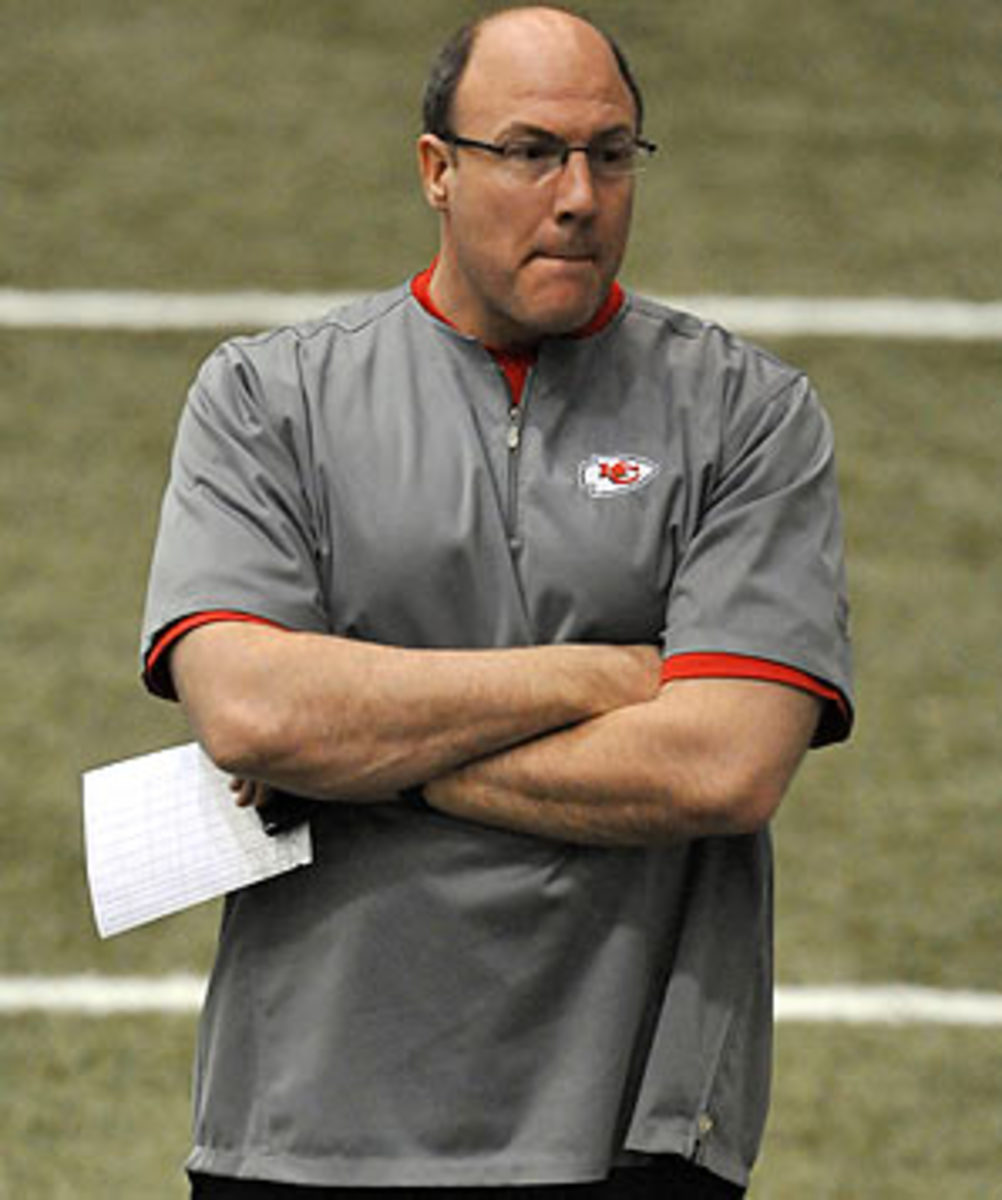Value over need: Chiefs need impact, not role player at No. 3
The trade for quarterback Matt Cassel and linebacker Matt Vrabel two months ago was a no-brainer for new Chiefs general manager Scott Pioli. The only thing the respected executive had to surrender in his first major personnel move since arriving from New England was a second-round draft choice. In exchange he received a young quarterback who won 10 starts in 2008 and an aging linebacker who still has the ability to make plays and provide leadership.
A far tougher decision for Pioli is what to do with the third overall selection in this weekend's draft. Recent mocks have him selecting former LSU end Tyson Jackson, who would be a perfect fit in the new 3-4 defense that Kansas City plans to run this year. The problem is that the third pick is expected to command in the neighborhood of $30 million in guarantees, and when you pay someone that type of money you expect him to break team records and opponents' wills.
Jackson is more likely to break your heart.
That's not a knock against Jackson. He was a fine player in college and likely will be a solid pro. But there's nothing in his track record that indicates he will be an impact player. He had more than 4.5 sacks only once in four seasons with the Tigers, even while playing three years alongside 2008 first-round draft choice Glenn Dorsey.
With their switch to a 3-4 defense, the Chiefs need an end with the size, strength and toughness to hold his ground against the run and take on double teams so the linebackers can run unobstructed to the ball. The pickings for such a player are slim in this draft. Still, you want more than a "system fit" for the type of money you'll have to pay the third pick.
In a perfect world for the Chiefs, they would trade down, save money, add picks and still get Jackson at a more reasonable rate. That's not likely to happen, however, because teams are reluctant to trade up due to the picks they would have to surrender and the contract they would have to give an unproven player. It's a double whammy.
Pioli's predicament is reminiscent of what took place with the Jets last season, the Falcons in 2007 and the 49ers in 2005. Each of those teams was drafting in the top 10 and had a glaring need -- New York and Atlanta for pass rushers, San Francisco for a quarterback. There wasn't a consensus "can't miss" prospect at those positions when the clubs made their selections, but the teams allowed need and desperation to dictate their selections.
Ultimately each franchise got burned, at least to this point in the chosen players' careers. Vernon Gholston had no sacks for the Jets as a rookie; Jamaal Anderson has two sacks in as many seasons for the Falcons; and Alex Smith, who is now on his fifth coordinator in five seasons, is fighting to regain the starting job he lost last season with the 49ers.
Pioli comes from an organization in which big-money contracts were the exception rather than the rule. Before New England beat Philadelphia in Super Bowl XXXIX, coach Bill Belichick pulled back the curtains on the approach he and Pioli used when acquiring personnel. Rather than pursue the biggest name or the best athlete, he said the organization would go after players who were the best fit for what the Patriots were trying to accomplish schematically. They would build around a few superstars with tough, intelligent, physical veterans who could fill specific roles.
If there is a reason Pioli might be willing to overspend and take Jackson earlier than most people have Jackson going, it's history. Pioli and Belichick did not have a first-round draft choice their first season together, in 2000, but the following year, after finishing 5-11, they entered the draft with the sixth choice overall. They took Georgia tackle Richard Seymour, who has been a standout end for the Patriots.
Jackson isn't regarded as highly coming out of college as Seymour was, but he played in the same conference, has a similar build, and has Pioli believing he can be a longtime anchor on the defensive line. Perhaps he can, but the No. 3 pick should be a hammer, not an anchor -- unless that anchor happens to be an offensive tackle, which is also a need for the Chiefs.
Kansas City has only six wins over the past two seasons because the roster is filled with holes. Besides both lines, the Chiefs have a need at wide receiver and issues at linebacker, where projected starters Vrabel and Zach Thomas will be 34 and 36, respectively, this season.
With the exception of one offensive tackle (who's expected to go to St. Louis at No. 2, after Detroit takes Georgia QB Matthew Stafford first overall), Kansas City pretty much will have its choice of prospects at its weakest positions. For the money the Chiefs will be paying, they should be bold rather than safe. The third pick overall should be an impact player, not a role player.






